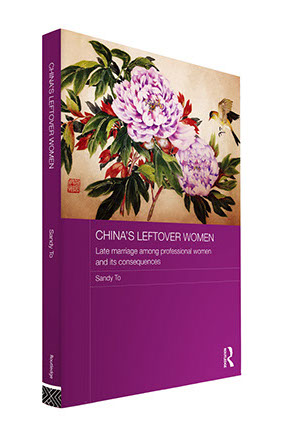Imagine being a lawyer and being told by your boyfriend that he likes you but he wants to marry someone who is more docile and easier to control. Or being asked by your boyfriend to quit your well-paying job. Or being advised by your parents to step down from running the family firm to improve your marriage prospects.
These were all stories Dr Sandy To encountered in her PhD research and subsequent publications on China’s ‘leftover’ women – women who are successful and want to marry, but keep getting turned away.
“These women are discriminated against because of their high educational levels and career achievements and because they don’t fit into the stereotype of being feminine and accommodating,” she said. “There’s a Chinese saying that the man achieves outside and the woman belongs inside, doing housework and bringing up children. That tradition has never changed, but the educational chances of women have and the culture has lagged behind.”
Dr To conducted in-depth interviews with 50 single professional and business women from different parts of China to analyse their situation and also see how she could help.

![]() These women are discriminated against because of their high educational levels and career achievements and because they don’t fit into the stereotype of being feminine and accommodating.
These women are discriminated against because of their high educational levels and career achievements and because they don’t fit into the stereotype of being feminine and accommodating. ![]()
Dr Sandy To
Four categories
She studied their views on marriage, economic values and gender role perceptions, and came up with four categories that provide a theoretical basis for understanding the responses of high-achieving women in China to the patriarchal demands of marriage. The categories could also help the women themselves in better understanding where they stand and what their options might be.
She identified ‘traditionalists’ who are desperate to get married and hold conservative economic values, meaning they do not mind playing the homemaker role and taking a back seat to their husband. ‘Maximisers’ are proactive about finding a husband and may conceal their achievements (such as having a PhD), but they are also flexible in their partner choice and willing to go for older men or even Western men.
‘Satisficers’ have even more relaxed economic values – they are willing to marry men of lower economic status. And ‘innovators’ do not see marriage as the ultimate goal, although they
do not reject it. They are prepared to be alone and some have started scouting nursing homes to see which are best able to look after them in old age.
Dr To said the women she interviewed did not oppose marriage. On the contrary, they wanted companionship and to keep their parents happy. “But they are finding difficulties because of their status. With these core partnership strategies, they can see what type or types fit them and maybe have a better understanding of their options,” she said.

‘Leftover’ Women
Speak Out
Successful single women in China can have diff iculty f inding a partner, but the media calls them ‘leftover’ and blames them for being picky about partners or lacking genuine interest in marriage. Sociologist Dr Sandy To has been listening to the women’s side of the story.
China’s Leftover Women: Late Marriage among Professional Women and its Consequences was published by Routledge in 2015.

Next
Back


